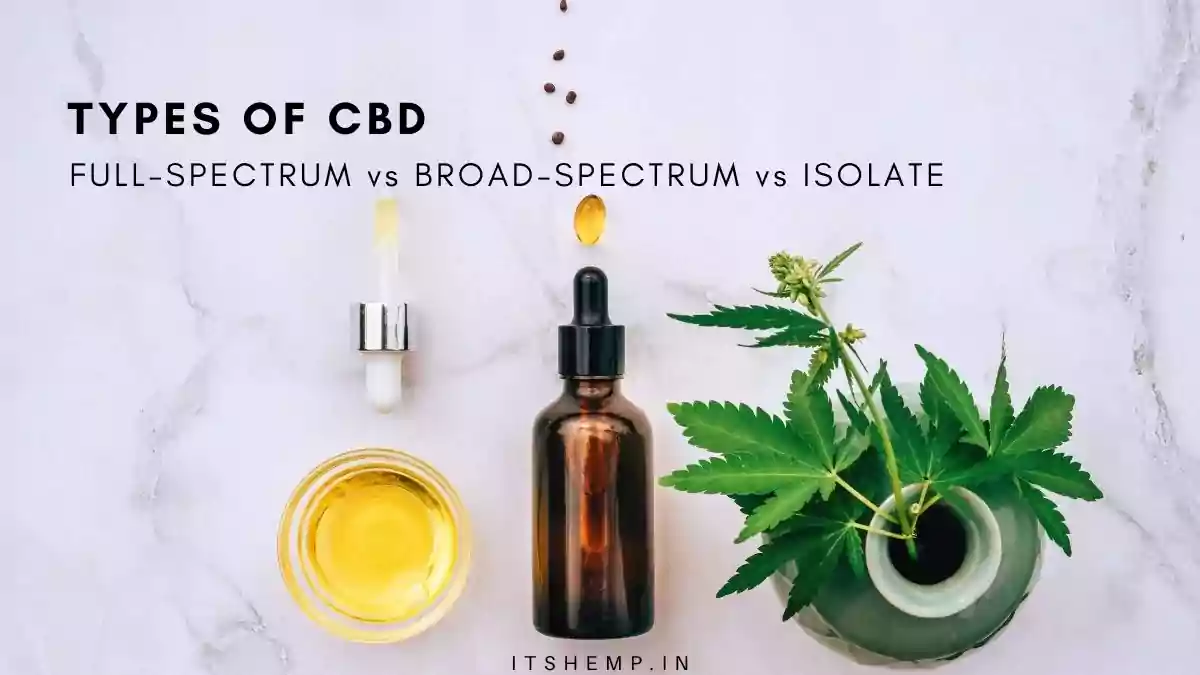CBD, short for cannabidiol, has gained widespread popularity for its potential health benefits and therapeutic properties. As more people turn to CBD for relief from various ailments, it’s essential to understand that not all CBD products are created equal. In this comprehensive guide, we’ll explore the different types of CBD available on the market, including full-spectrum, broad-spectrum, and CBD isolate, to help you make informed decisions about which type may be best suited for your needs.
1. Full-Spectrum CBD:
Full-spectrum CBD contains all the naturally occurring compounds found in the cannabis plant, including cannabinoids, terpenes, and trace amounts of THC (tetrahydrocannabinol), the psychoactive compound responsible for the “high” associated with marijuana. Despite containing THC, full-spectrum CBD products are legal as long as they contain less than 0.3% THC by dry weight, as mandated by federal law in the United States. The presence of other cannabinoids and terpenes may enhance the therapeutic effects of CBD through what’s known as the entourage effect.
2. Broad-Spectrum CBD:
Broad-spectrum CBD is similar to full-spectrum CBD in that it contains multiple cannabinoids and terpenes, but with one key difference: it undergoes additional processing to remove all traces of THC. This makes broad-spectrum CBD a suitable option for individuals who want to experience the potential benefits of multiple cannabis compounds without any risk of psychoactive effects or concerns about THC content. Like full-spectrum CBD, broad-spectrum products may also benefit from the entourage effect, albeit to a lesser extent.
3. CBD Isolate:
CBD isolate is the purest form of CBD available, containing 99% pure CBD and no other cannabinoids or terpenes. It undergoes a rigorous extraction process that removes all other plant compounds, leaving behind a crystalline powder or solid form of CBD. CBD isolate is odorless, tasteless, and devoid of any potential psychoactive effects, making it ideal for individuals who prefer a THC-free option or require precise dosing without interference from other compounds. However, some argue that CBD isolate lacks the synergistic effects of full-spectrum and broad-spectrum CBD due to the absence of other cannabinoids and terpenes.
Choosing the Right Type of CBD:
When selecting a CBD product, it’s essential to consider your individual needs, preferences, and desired effects. Here are a few factors to keep in mind:
- Potency: Full-spectrum CBD may offer enhanced potency and efficacy due to the entourage effect, while CBD isolate provides precise dosing and THC-free options.
- Legal Considerations: Depending on your location and personal preferences, you may opt for broad-spectrum or CBD isolate products to ensure compliance with THC regulations.
- Entourage Effect: If you believe in the synergistic effects of multiple cannabis compounds, full-spectrum or broad-spectrum CBD may be the preferred choice.
Conclusion:
In conclusion, the world of CBD offers a variety of options to suit every individual’s needs and preferences. Whether you opt for full-spectrum, broad-spectrum, or CBD isolate, each type has its own unique benefits and potential therapeutic effects. By understanding the differences between these types of CBD and considering your specific requirements, you can make informed choices to enhance your overall wellness and quality of life.





